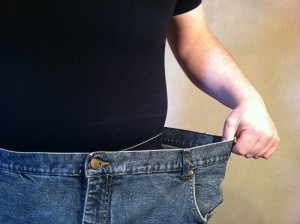Gastric bypass surgery offers the morbidly obese a new lease on life, according to research. Recent studies confirm that people who undergo Roux-en-Y weight loss surgery lose the most weight and keep it off, more so than with gastric banding. But while gastric surgery promises a high success rate, the risk for serious complications is significantly higher than with other kinds of bariatric surgery.
What is gastric bypass surgery?
The Roux-en-Y gastric bypass changes the size of your stomach and reroutes food past certain parts of the digestive system. People who undergo gastric bypass surgery achieve a feeling of fullness much quicker than before the surgery, and are thus able to eat less and lose a considerable amount of weight. However, because gastric bypass is a complicated procedure, many problems may arise during or after the surgery.
- With the Roux-en-Y gastric bypass, a small egg-sized stomach sack is created and attached to the middle part of the small intestine.
- The rest of the stomach, as well as the upper section of the small intestine, are completely avoided, or “bypassed.”
- A common side effect of gastric bypass is gastric bypass dumping in which food travels through the stomach and empties into the small intestine too quickly, causing symptoms like diarrhea, nausea, and stomach cramps.
- Another common side effect is nutritional deficiency, including vitamin B12 deficiency and many other vitamin, calcium, iron, and magnesium deficiencies.
- Patients of gastric bypass surgery must supplement with extra vitamins and minerals, with a special emphasis on vitamin B12 supplements, in order to avoid vitamin B12 deficiency symptoms like nerve cell damage and memory problems.
Vitamin B12 deficiency after Bariatric Surgery Weight Loss
What is gastric banding?
Laparoscopic adjustable gastric banding surgery is the second-most popular form of bariatric surgery after the gastric bypass procedure. Banding is a good alternative for gastric bypass surgery because it is less invasive.
- In gastric banding, the surgeon places an adjustable silicon band around the upper part of your stomach, effectively cinching it to a smaller size.
- After banding, your stomach can hold only about 1 ounce of food at one time.
- The gastric band is adjusted through a saline solution that may be injected through a small device under the skin.
- Most people who undergo gastric banding lose approximately 40% of their body weight.
- Gastric banding surgery is completely reversible.
- The mortality rate due to gastric banding surgery is 1/2000.
- Since the small intestine remains intact, gastric banding surgery does not disrupt your digestive system, and there is no risk of vitamin deficiency, such as vitamin B12 deficiency.
Gastric Bypass Stomach Surgery in Mexico- Would you?
Is gastric banding surgery safer than gastric bypass?
In a recent study comparing success rates between gastric bypass surgery and gastric banding, scientists had this to say:
- About 17% of gastric bypass patients had complications like infections following surgery, compared to only 5% of gastric banding patients.
- Six years post-surgery, 12% of gastric bypass patients were back to being morbidly obese, with a BMI over 35, while about a third of gastric banding patients were once again overweight.
- Thirteen percent of bypass patients required a follow-up operation, while approximately 27% of gastric banding patients needed to return for more surgeries.
- Complications involved with gastric banding include band erosion, stretched esophagus, or food-related issues.
- Complications involved with gastric bypass can be much more severe; possibly fatal complications include bowel blockage and leakage of waste material into the body.
Anorexic British Teen Regrets Gastric Bypass Surgery
Which should I choose- banding or bypass?
With gastric bypass surgery, food rushes through the digestive system, and essential minerals and vitamins pass through without ever being absorbed into the bloodstream. So while you feed your stomach, you are not feeding the rest of the body the nutrients that it needs to survive. Life-long supplementation of vitamins- vitamin A, vitamin C, vitamin E, and B vitamins-, and minerals is a commitment that gastric bypass patients much make.
Your chances of losing weight following gastric banding are 50/50, and there is a fair chance that you will have complications that require a return trip to the operating room. However, banding-related complications are less severe than bypass-related complications, which can be fatal. Then again, if obesity poses a serious life risk, then you might be better off with the most successful weight loss surgery- gastric bypass.
Was this article helpful? If so, please share with your friends…and leave us your comments. We’d love to hear from you!
Read more about bariatric surgery here:
10 Mistakes Gastric Bypass Patients Often Make
B12 Deficiency: Don’t Ignore the Symptoms
Weight Loss Surgery: What 50 Post-Op Patients have to Say
Sources:
Long term, gastric bypass beats out banding: study- Reuters
Gastric Banding Surgery for Weight Loss
Roux-en-Y Gastric Bypass vs Gastric Banding for Morbid Obesity
Images, from top:




